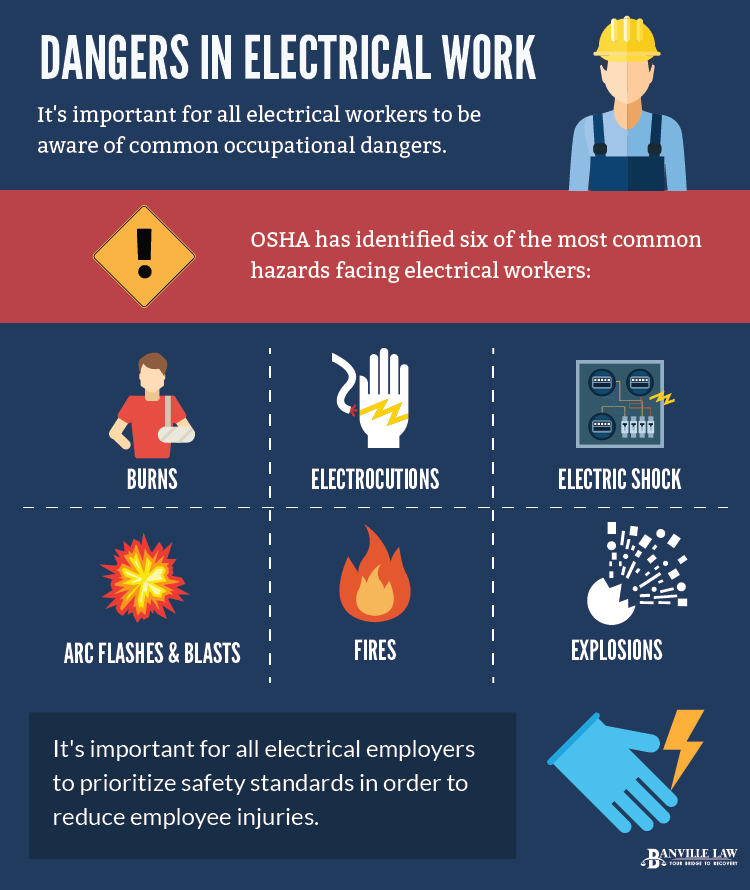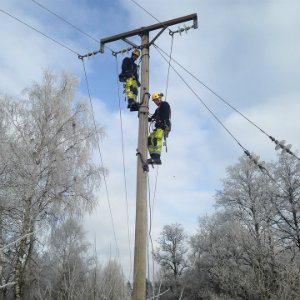Electrical work has always been one of the most dangerous trades. While safety standards have improved over the years, electricians and other electrical workers still face the risk of serious injury or death while they’re on the job. This type of work requires exposure to high voltages and labor from high elevations, and even small accidents can result in debilitating injuries.
Electrical workers who suffer job-related injuries are eligible for financial compensation for their injury expenses through the help of a workman's comp attorney. Those who are classified as employees qualify for workers’ compensation. Many electricians work as independent contractors on construction sites and may not be covered by an employer-provided workers’ compensation plan. In these cases, personal injury lawsuits against negligent third parties may provide additional compensation.
Employees may also have grounds for a personal injury lawsuit if their injury was caused by a negligent third party. This is especially common on construction sites, where workers from multiple employers are working closely together. If someone other than a co-worker or your employer caused you to be injured through negligence, you could hold them liable for injury-related damages such as:
While every employee is entitled to workers’ compensation, many injured workers struggle to receive their benefits. Employers and insurance companies both frequently dispute and deny claims in order to keep premiums low and insurance company profits high.
In other cases, employers misclassify employees as independent contractors in order to avoid providing these benefits. This is illegal and employers who intentionally misclassify workers could face criminal penalties in addition to liability in personal injury claims.
If your claim has already been denied, you may be feeling stressed and worried about how you’ll support your family until you can return to work. While the appeals process can cause headaches for injured workers, having an experienced New York electrical work injury lawyer by your side can help you get through it quickly and painlessly. Your employer’s insurance carrier will have their own lawyers who specialize in denying claims. It’s only fair that you have your own legal aid to help you through the process.


The Occupational Safety and Health Administration (OSHA) has identified six common electrical worker hazards. They suggest that employers instruct their employees on the dangers of these hazards by using the acronym BE SAFE:
Regardless of how your injury may have occurred, you are entitled to financial compensation when you’re unable to work. Workers’ compensation is a no-fault form of insurance, which means that you’re entitled to benefits and your employer is protected from lawsuits, even if negligence caused the accident.
Unfortunately, electrocutions are some of the most common fatal work injuries. While families are aware of the risks of their loved one’s occupation, there’s no way to prepare yourself for life after the unexpected death of a loved one.
Grieving is painful enough without having to worry about how your family will keep the lights on. Workers’ compensation provides death benefits for the families of workers who passed away in work-related injuries. Additionally, your family may have grounds for a wrongful death lawsuit if negligence was a contributing factor to your loved one’s death.
At Banville Law, we understand how painful it is to lose a loved one. That’s why we’re proud to assist surviving families and make sure that they can support themselves financially. This way, you can focus on supporting each other without worrying about how you’ll pay your bills.
Injured while working in the food service industry? Applying For Workers’ Comp As An Injured Food Service Employee can be confusing. Click the link to learn more.